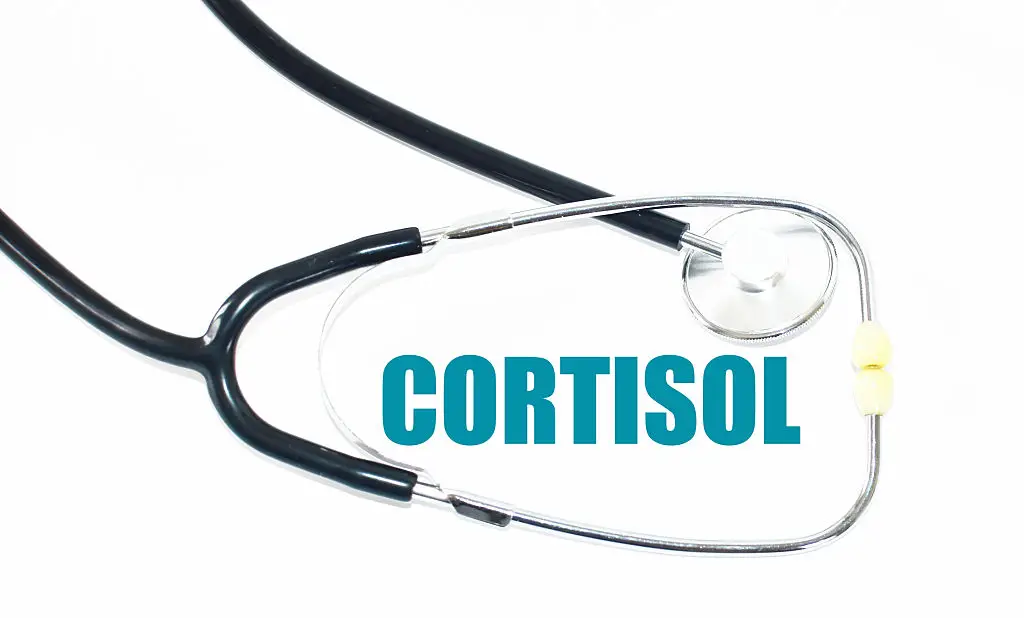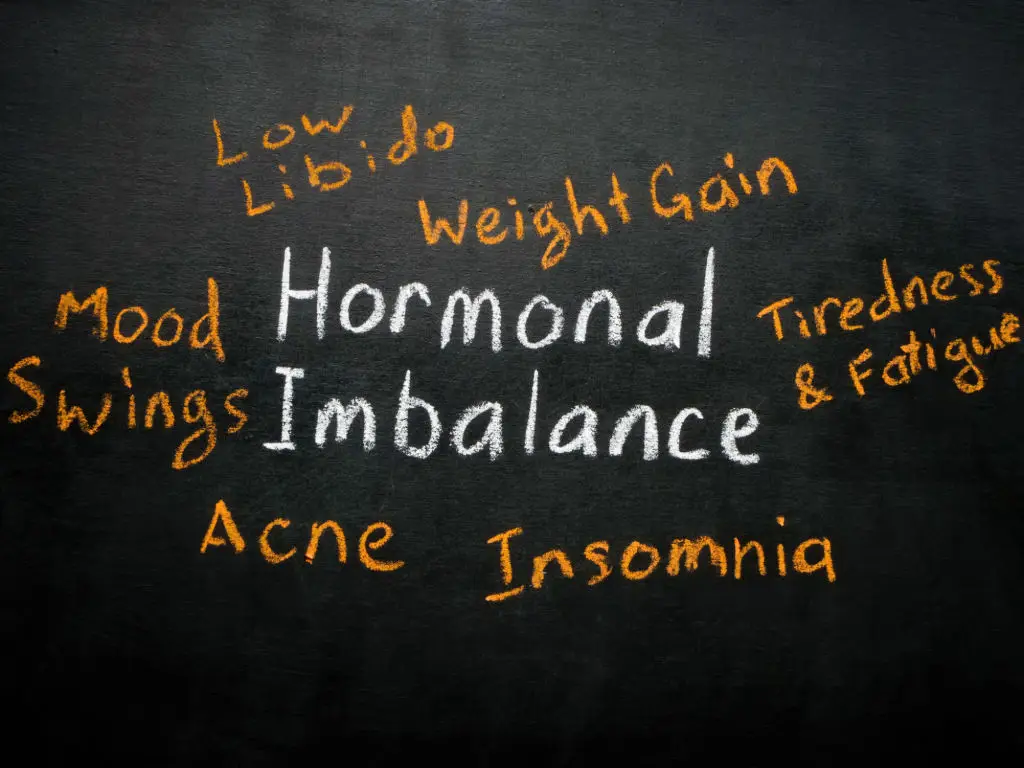More Than Just a "Bad Day": The 12 Emotional and Physical Signs You're Experiencing Adrenal Fatigue
Everyone knows what it’s like to feel overworked or exhausted from time to time. But if you’ve noticed your energy, mood, or health slipping in ways that just don’t bounce back—no matter how much you rest—you might find yourself searching for answers. Enter the conversation around adrenal fatigue: a collection of emotional and physical symptoms that many people experience, yet which remain a topic of debate in the medical world. Some functional medicine practitioners use “adrenal fatigue” to describe what happens when ongoing stress overwhelms the body's ability to keep up, especially its stress hormone rhythm. Mainstream medicine, meanwhile, points to symptoms like persistent tiredness, emotional swings, sleep troubles, and even weight fluctuations as signs of stress or hormonal imbalance, not an official diagnosis. Regardless of the terminology, what matters most is how you’re feeling—and that your experience is real and worthy of attention. If you or someone you love is running on empty, feeling “off” emotionally, or getting sick more often than usual, you’re not alone. This list shines a gentle light on 12 of the most commonly reported emotional and physical signs often associated with adrenal fatigue or cortisol imbalance. Recognizing these patterns isn’t about diagnosing yourself—it’s about giving yourself permission to notice, reflect, and begin making small, sustainable changes. Most importantly, if these signs feel familiar, talking with a trusted healthcare provider is the kindest next step you can take in your wellness journey.
1. Persistent Physical Fatigue That Rest Doesn't Fix

Let’s face it—waking up tired happens to everyone once in a while. But when exhaustion becomes your daily companion, even after a full night’s sleep, it’s time to take notice. Persistent fatigue that simply doesn’t lift, no matter how well you eat or how early you get to bed, is widely recognized as a core feature of adrenal fatigue. Experts like Dr. Lam identify this unshakable tiredness—especially waking up groggy and crashing hard by mid-afternoon—as a signature sign your stress system may need extra support. You might notice you’re reliant on coffee or sugary snacks just to function, or that your “get up and go” has quietly disappeared. Unlike the kind of tiredness that improves after a weekend of rest or a vacation, this fatigue lingers in the background. It can leave you feeling disconnected from the activities you once enjoyed or struggling to keep up with your regular routine. While mainstream medicine often links chronic fatigue to other factors, if these energy lows become your new normal, it may be your body’s way of asking you to slow down and check in with your overall wellness. Listening to your energy levels—without judgment or pressure—can be the first act of self-care.
2. Disrupted Sleep and Feeling 'Wired but Tired'

There’s nothing quite as frustrating as feeling exhausted all day, only to struggle with falling or staying asleep at night. Many people who experience symptoms linked to adrenal fatigue describe a kind of catch-22: a deep, dragging tiredness mixed with a “wired” feeling that just won’t turn off after dark. Dr. Mark Hyman refers to this as being “wired but tired”—your body’s stress response is on overdrive when you want to rest. You may toss and turn, wake up frequently, or stare at the ceiling while your mind races. This pattern of sleep disruption goes beyond the occasional restless night. The rhythm of your body’s stress hormone (cortisol) can become out of sync—leaving you alert when you want to relax and sleepy when you need to focus. As a result, a lack of quality sleep only adds to daytime fatigue, creating a cycle that’s hard to break. Recognizing this cycle, and giving yourself patience rather than criticism, is often the gentle nudge needed to explore new sleep routines or relaxation practices. Your body’s call for rest is not a weakness—it’s a signal to honor what you need.
3. Brain Fog, Forgetfulness, and Trouble Focusing

Ever find yourself reading the same sentence over and over, misplacing your keys, or spacing out mid-conversation? These moments, especially when they become frequent, often fall under what’s known as “brain fog.” Difficulty concentrating, forgetfulness, and slowed thinking are some of the most commonly reported mental symptoms for people navigating adrenal fatigue or ongoing stress. As Dr. Lam notes, these cognitive changes can feel unsettling—like you’re not operating at full mental capacity, even though you’re trying your best. Brain fog can show up as sluggish problem solving, missing appointments, or struggling to finish tasks that used to feel easy. While mainstream providers may look for other causes, this kind of mental fatigue is a real and valid experience, especially during periods of chronic stress or hormonal imbalance. Rather than blaming yourself, consider this an invitation to slow down, reduce your multitasking, and offer your mind the same compassion you’d give a friend in a similar situation.
4. Moody, Irritable, or Feeling Emotionally Unsteady

When stress takes hold, emotional steadiness can feel just out of reach. Many people experiencing adrenal fatigue or high stress notice their moods shifting like the weather: one moment anxious and tense, the next low or discouraged. Irritability, mood swings, and even mild depression are all commonly described signs. As highlighted by CNET and the Women’s Health Network, these changes may emerge slowly, often catching you off guard. Feeling overwhelmed by small frustrations, snapping at loved ones more than you’d like, or sensing a general undercurrent of unease—all are part of this emotional rollercoaster. It's important to remember that these mood changes do not reflect some personal failing, but are instead your body’s way of communicating its need for support. The most nurturing step you can take is simply to acknowledge what you feel, offer yourself patience, and reach out to others if you're finding it hard to steady your emotional sails.
5. Overwhelming Stress Response—Shakiness or Heart Palpitations

Ever notice your hands trembling before a meeting or your heart racing just thinking about your to-do list? These pronounced stress responses—shakiness, nervousness, or a sensation of heart palpitations when facing even minor pressures—can be part of adrenal fatigue’s physical storyline. Dr. Lam refers to this as the body’s reduced “stress tolerance,” where the smallest bumps in the routine feel like mountains to climb. These reactions mean your body’s fight-or-flight system is switched on even when it’s not needed. While many factors influence these symptoms, persistent stress or disrupted cortisol rhythms can make everyday stressors feel bigger than they are. If these feelings are familiar, take it as a cue to build in calming practices throughout your day and remind yourself that it's more than okay to seek support. Calming your system isn’t a luxury—it's an essential part of maintaining resilience.
6. Unexplained Weight Gain—Especially Around the Belly

Perhaps you’ve noticed your clothes fitting differently or the scale creeping up with no obvious cause. Unexplained weight gain, particularly around the waistline, can sometimes signal a disrupted stress hormone pattern or slowing metabolism. Dr. Lam points to this type of weight change—despite normal habits—as a classic marker for adrenal fatigue. The waist is a common place where the body stores excess energy when stress hormones are out of balance. You may find that no matter how consistent your eating or activity, shedding those extra pounds feels harder than ever. While weight changes have many causes, it’s important not to judge your body or equate worth with a number. Instead, view this as an opportunity to tune into what’s happening internally and to consider gentler, more holistic approaches to moving and nourishing your body.
7. Getting Sick More Often or Taking Longer to Recover

Your body's immune system is like your own personal security team—but under stress, even the best defenses can become depleted. Getting sick more frequently, or needing unusual amounts of time to bounce back from common illnesses, is frequently highlighted in both Dr. Lam’s clinical experience and mainstream resources as a possible effect of stress overload. The connection stems from the body's continual effort to juggle stress hormones at the expense of immune resilience. You might notice more colds, lingering coughs, or a general sense of always being “run down.” Rather than push through, give yourself permission to rest and recover fully—restoring your energy is not a sign of weakness but an essential act of self-care. If you find that illnesses are popping up more often or sticking around longer than they used to, it might be your body’s way of signaling it’s time for extra care and perhaps additional support from a healthcare provider.
8. Cravings for Salt, Sugar, or Caffeine

Ever find yourself reaching for a salty snack or another cup of coffee far more than you used to? Intense cravings for salt, sugar, or caffeine can be a subtle sign your body is searching for quick energy or trying to rebalance itself. According to Dr. Lam, such cravings are common when adrenal function is under strain, often due to the body’s effort to maintain blood sugar and electrolyte balance during ongoing stress. These cravings aren’t simply a matter of willpower. Chronic stress can impact your blood sugar and salt levels, leaving you looking for relief wherever you can find it. If you recognize patterns like needing constant pick-me-ups or feeling unable to start the day without caffeine, see it as a helpful signal. Exploring steady, nourishing meals and slow-release energy foods can often bring relief. There’s no need for guilt—listening to your cravings with curiosity can be the first step towards supporting balanced energy.
9. Changes to Libido or Menstrual Cycles

Hormones like cortisol affect much more than stress—they play a role in sex drive and reproductive cycles, too. Many women and men report shifts in libido during periods of chronic stress or symptoms often labeled as adrenal fatigue. For some, libido decreases; for others, menstrual cycles become unpredictable or premenstrual symptoms grow stronger. If you’ve noticed changes in your sexual interest or menstrual regularity, it might be your body’s gentle nudge that something’s out of sync. These shifts can be deeply personal and sometimes difficult to discuss, but they’re valid and worth attention. Supporting hormone balance often starts with prioritizing rest, nourishing meals, and easing self-expectations. If changes in libido or cycle bother you or linger, a sensitive and knowledgeable healthcare provider can help you explore what’s best for your unique needs.
10. Aches, Pains, Hair Loss, or Skin Changes

Physical stress can reveal itself through the body in ways that are hard to ignore: new aches in the upper back or neck, unexplained pains, or signs like hair thinning and skin dryness. These symptoms often surface as the body tries to adapt to prolonged demands. Dr. Lam and other experts observe that, under chronic stress, the body may redirect nutrients and energy away from hair and skin maintenance to more immediate survival needs. If you notice your hairbrush filling up faster, or your skin feeling drier or thinner than usual—especially along with other symptoms—it can be helpful to think holistically. Focus on restful habits and gentle self-care rather than quick cosmetic fixes. Every body is different, and these symptoms, while distressing, are just one piece of your body’s complex stress puzzle. Healthy change begins with respect for what your body is communicating.
11. Digestive Upset—From Sensitive Stomachs to Unpredictable Digestion

Stress and digestion have a closer relationship than most people realize. For many navigating adrenal fatigue or chronic stress, new digestive grumbles—like constipation, diarrhea, unpredictable digestion, or increased food sensitivities—come as an unwelcome surprise. Dr. Lam highlights shifts in the gut as part of the “stress connection,” while mainstream medicine recognizes the impact of cortisol on the digestive tract. Frequent bloating, discomfort after eating, or sudden changes in regularity may all be your gut’s way of waving a flag. The good news: small shifts in stress reduction, meal timing, and food choices can often bring comfort over time. Treating your digestive system with kindness, and not judgment, can help you restore balance gently. If issues become persistent, seeking support is a proactive step, not a cause for worry.
12. Dizziness Upon Standing or Fluctuating Blood Pressure

Ever stand up quickly, only to feel lightheaded or dizzy? This sensation, sometimes linked to blood pressure changes, is another pattern that can accompany sustained stress or symptoms attributed to adrenal fatigue. Dr. Lam refers to this as “orthostatic hypotension,” often described by those experiencing adrenal exhaustion as that shaky, spinning feeling after rising from a chair. Blood pressure is regulated in part by stress hormones, so when the body's system is overworked, these ups and downs may become more noticeable. While dizziness can stem from many causes, if it’s part of a broader picture of fatigue and stress, it might be worth noting in your health journey. Easing into standing and staying hydrated are small comforts that can help; if symptoms become frequent, a conversation with a healthcare professional is a wise and caring next step.
Honoring Your Signals: The Next Gentle Step

If you found yourself nodding along with these signs, remember: this list isn't about labeling or diagnosing, but about honoring what your body and mind are communicating. Our bodies are quietly wise, revealing stress or imbalance in individual and sometimes surprising ways. Noticing these signs is an act of self-care—it means you’re listening and willing to explore what you need to feel more like yourself again. It's natural to seek answers when you don’t feel quite right, yet it's equally important to be gentle with yourself throughout the process. The idea of adrenal fatigue remains debated in medical circles, and many symptoms overlap with other health conditions. If any of these patterns feel familiar, reaching out to a medical professional you trust is a crucial and empowering next step. You deserve compassion, understanding, and practical strategies that honor your unique experience. Above all, treat yourself as you would a close friend—patiently, kindly, and with the belief that lasting wellness comes not from pushing harder, but from embracing steady, sustainable change. Every small act of self-care is a step toward greater energy, balance, and confidence in your ability to navigate life’s challenges.
